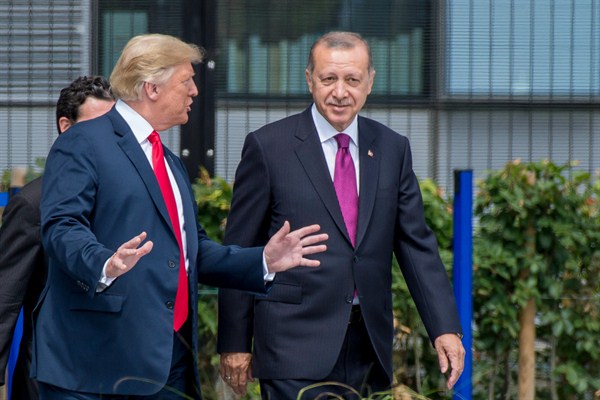Amid worsening ties between Turkey and Saudi Arabia over the murder of Saudi journalist Jamal Khashoggi, Turkey’s previous tensions with the United States, which only months ago looked intractable, appear to be easing. This upswing reflects Turkey’s longstanding institutional comfort, if not always strategic preference, for its Western ties, and, more immediately, a certain tactical play against its rival in Riyadh. But Turkey’s Western moorings are hardly secure—a position that still looks increasingly out of step for a Turkish government with aspirations for regional and even global leadership.
As new details continue to emerge about Khashoggi’s murder in the Saudi consulate in Istanbul in early October, already difficult relations between Turkey and Saudi Arabia have plunged to new lows. Whether due to genuine horror, umbrage at the perceived violation of Turkish sovereignty, the instrumentalization of the killing as a foil in a long-running rivalry with Riyadh, or some combination of factors, Turkish President Recep Tayyip Erdogan and his government have taken particular interest in the case. Timely leaks to the press from Turkish government sources, along with more official statements, have forced the Saudis to repeatedly backtrack and tacitly admit their role in Khashoggi’s grisly death.
Yet there has been an unexpected beneficiary from cratering Turkish-Saudi ties: Ankara’s rocky relationship with Washington, which had hit new lows in the weeks ahead of Khashoggi’s murder. By late September, the two longstanding allies were at odds over everything from Turkish arms purchases from Russia, Iran sanctions and the fate of imprisoned American pastor Andrew Brunson. With relations at a nadir, the U.S. and Turkey traded tariffs, further sinking a flailing Turkish economy, while lending fresh speed and purpose to Turkey’s seeming strategic drift.

